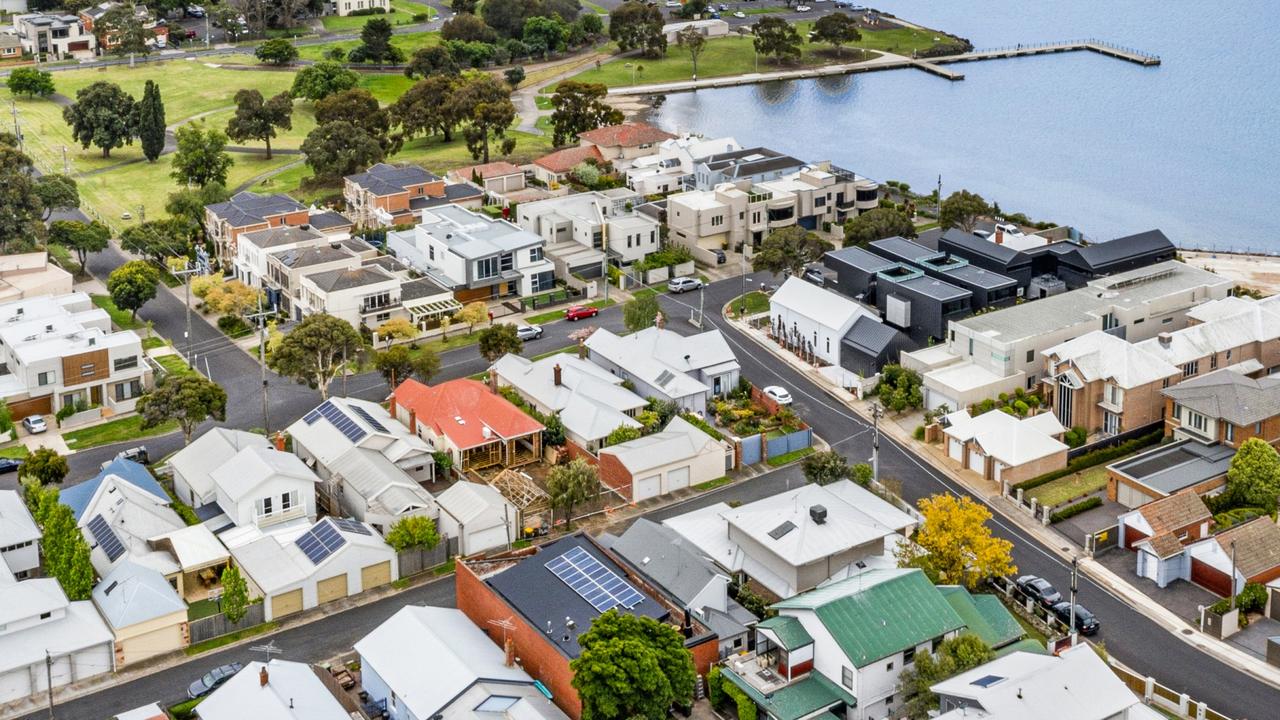RBA holds fire on interest rate hike but ‘leaves door open’ to 2023
The central bank now seems open to the possibility of lifting the all-important cash rate before 2024 – but expect your own bank to move beforehand.
The Reserve Bank of Australia has kept interest rates on hold but opened the door for a hike sooner than its oft-repeated 2024 prediction, conceding price inflation has picked up sooner than thought.
Following its monthly board meeting on Tuesday, the central bank announced the cash rate – the interest rate on unsecured overnight loans between banks – would stay for now at the historic low of 0.1 per cent as widely expected.
The rate was reached after a series of cuts that began in March last year as the Covid-19 crisis kicked in.
The RBA has repeatedly said a hike is unlikely before 2024 as it wants actual inflation “sustainably” within the 2-3 per cent target range.
A pivotal moment came last week when Australian Bureau of Statistics inflation figures showed the strongest annual growth rate in prices in almost six years.
The trimmed mean numbers – which the RBA watches most closely – fell within the RBA’s target band, rising to 2.1 per cent growth over the year compared with an expected 1.8 per cent.
RBA governor Philip Lowe said on Tuesday that inflation had picked up earlier than expected but in underlying terms was “still low”.
“The board is prepared to be patient, with the central forecast being for underlying inflation to be no higher than 2½ per cent at the end of 2023 and for only a gradual increase in wages growth,” he said.
BIS Oxford Economics chief Australia economist Sarah Hunter noted the RBA board was looking for core inflation to reach the middle of the band before tightening “and so they expect the cash rate to remain on hold for another two years”.
“The key driver of the revision (from 2024) is the improving domestic environment with the relatively fast vaccine rollout and reopening of the economy,” Dr Hunter said.
Peter Esho, co-founder of property investment company Wealthi, described Dr Lowe’s “patient” commentary as “putting on a brave face” to “settle some nerves into early next year”.
“The RBA will buy more time to assess quarterly inflation and inevitably decide if it has been right or wrong in the timing of its ultra-low stance,” Mr Esho said.
“Time will tell, but the door has been open today for higher rates earlier than expected.
“A stronger than expected pandemic recovery and wages growth will be key to watch in the first half of next year.”
Some economists believe a hike could come as soon as late 2022, but most appear to be tipping 2023, including investment bank Morgan Stanley.
Canstar group executive of financial services Steve Mickenbecker is another, saying the trend of lenders increasing fixed interest rates for terms greater than 12 months also suggests a higher cash rate some time in 2023.
Callam Pickering, economist at global job site Indeed, says that critical wage growth figure will determine “whether the RBA hikes rates next year or the year after”.
The latest wage growth figures show it sitting at just 1.7 per cent.
“Until wage growth hits 3 per cent or higher, it will be difficult for the RBA to consistently achieve its 2-3 per cent inflation target,” Mr Pickering said.
CreditorWatch chief economist Harley Dale said market interest rates would rise in the interim “or so everybody expects”.
Mr Dale said the RBA’s December 7 board meeting decision – the final until February 1 – would be this year’s most important.
“The RBA is sticking to its record low interest rate policy but not necessarily the timing of it,” he said.
“The December statement will be a key update given the bank will have had the opportunity to scrutinise an increasing amount of information regarding post-lockdown economic outcomes.”
Meanwhile, almost 30 per cent of respondents to a Canstar survey said they favoured increasing interest rates as a measure to cool the property market following the latest CoreLogic data showing national home values rocketed 21.6 per cent over the year to October.
“It may be a case of ‘be careful what you wish for’,” Mr Mickenbecker said.
“If the cash rate hiked by 0.25 per cent and lenders passed this on in full, a residential borrower with a $1m mortgage on the average variable rate of 3.09 per cent would see their monthly loan repayments rise by $137 to reach $4402.
“But this will be just the start of the race for rate increases and a year down the track would surely see the cash rate increase by 1 per cent.
“If this happens, the borrower with a $1m mortgage would see their monthly repayments rise by $561 to $4826, which is quite a stretch.”
Originally published as Reserve Bank keeps unprecedented low cash rate on hold but could move sooner than 2024
For all the latest business News Click Here

